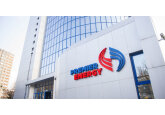
NAER called incorrect the recent comparisons of Brent quotes with fuel prices in Moldova that appeared in the public space.
In particular, the National Agency for Energy Regulation reported that an analysis has recently appeared in the public space, comparing Brent oil quotations and the evolution of fuel prices in Moldova and noting the ambiguity of their correlation. In this context, NAER provided some technical clarifications regarding the oil reference price and fuel pricing mechanisms, both internationally and locally, in order to avoid any misinterpretation of the information or any manipulation of it. As noted, the unit of measurement for oil is a barrel (about 159 liters). Oil has different names (brands) depending on the region in which it is sold. Thus, the London Stock Exchange sells oil under the Brent brand, the New York Stock Exchange - under the WTI (West Texas Intermediate) brand, and on the Russian market oil is sold under the Urals brand. More than 60% of the world's oil transactions are based on Brent, which is why it is considered the benchmark for setting oil prices. The price of petroleum products (for example, gasoline and diesel fuel) correlates with quotations set daily by the US company S&P Global Platts based on the Platts methodology. According to this methodology, buyers and sellers of petroleum products place their price requests and offers on the Platts “Market on close” (MOC) electronic platform every business day. The price per ton of gasoline or diesel fuel is set at 16:30 London time (18:30 Chisinau time) based on the best selling price per ton that day. During the trading day on the Platts (MOC) platform, the price per ton of gasoline or diesel fuel changes depending on many factors: fluctuations in oil prices on international exchanges, demand and supply of petroleum products, economic and geopolitical news, availability of oil or petroleum products in certain regions, etc. Deals are segregated by geography, so prices set by Platts accurately reflect the situation in that region. The price per ton set by S&P Global Platts is published and communicated to its subscribers (manufacturing companies, traders, brokers, refineries, importers, etc.) after transactions are completed on the Platts MOC platform. This price (quotation) is used by professional market participants to determine the selling price of a tonne of gasoline or diesel fuel. In most cases, especially in the South East Europe region, the model used as the basis for transactions is the average quote for the last 2 weeks. The NAER Calculation Methodology uses the average value of Platts quotes for the previous 14 days, correlated with the leu/dollar exchange rate, to which are added excises, VAT and specific trading margin (set every 6 months by NAER). Thus, the NAER pricing method, like the prices set by companies in international transactions, allows the effect of a price increase or decrease made on a particular day to be amortized by the average value. Therefore, any drop or increase in the price on international markets does not have an immediate impact on filling stations in Moldova, but is weakened by an average value and is felt only after a few days. According to NAER, at present, due to changes in the global fuel market, the correlation between Brent oil quotations and Platts quotations for its derivatives (gasoline and diesel fuel) is becoming less and less likely and is dictated solely by supply and demand in a particular region.The Energy Regulator also reminds that there are no oil refineries in Moldova, therefore, the use of Brent oil price indicator in economic analysis or calculations is strictly relevant for predicting the market trend, and not for exact calculations. For this purpose, it is correct to use Platts quotes for gasoline or diesel fuel. NAER recalled that on May 27, according to the data published by NAER, the average quotation of Platts for diesel fuel, expressed in lei, was 17.6 lei/liter, and on June 10 - already 20.62 lei/liter (+17.1 %). During the same period, the maximum price for diesel fuel increased from 27.29 to 30.91 lei per liter (+13.26%). “Therefore, the comparison presented in the public space, in addition to the fact that it was not based on Platts quotes, was also made incorrectly, because it was based not on average data, but on actual data,” the NAER said. They emphasized that the National Agency for Energy Regulation guarantees the correctness of the maximum retail prices for standard oil products of a standard type, which are calculated in accordance with applicable standards, and the energy regulator monitors their compliance by all companies in the industry. // 13.06.2022 — InfoMarket







